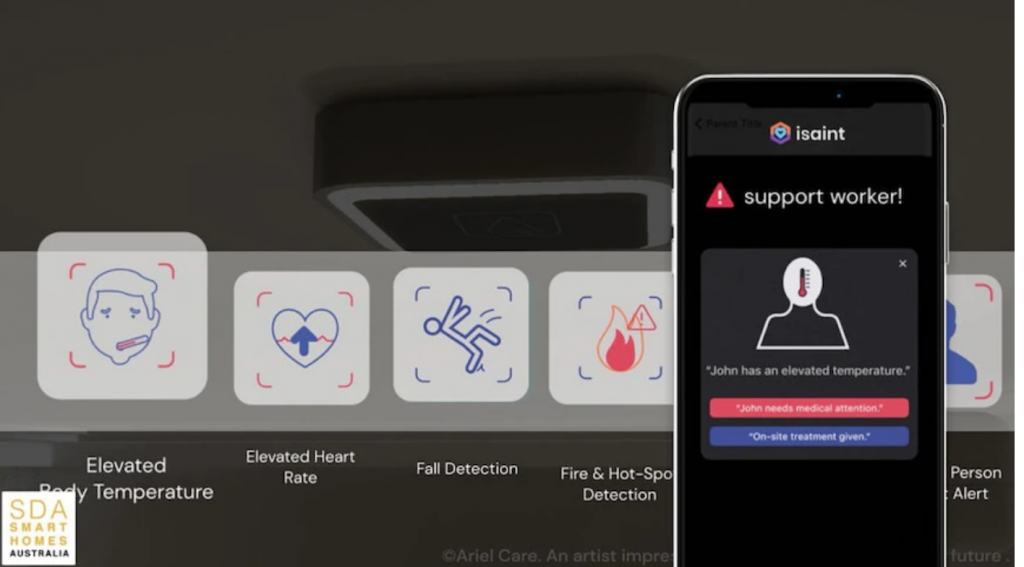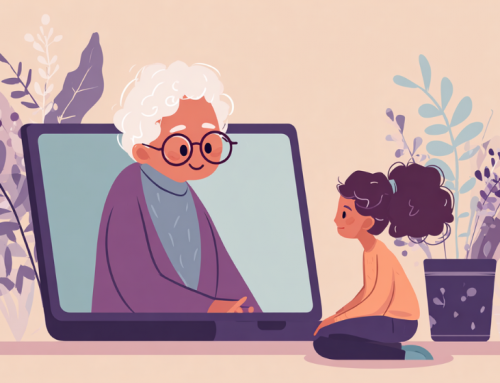
Example of AI technology in an assisted care setting. (Source: Ariel Care)
Interactive AI Proves To Be A Huge Assist In Caregiving
It’s not too often that we run across such heartwarming stories about AI from the Land Down Under, but this week is an exception. In a pilot program to assist medically compromised people with interactive AI, some Australian researchers and an AI start-up have begun a program using AI to help direct the care of an immobile and uncommunicative person.
Two Queensland universities have teamed up with a tech start-up to see how “care bots” can improve the lives of people who need high-level care.
The technology responds to sounds, eye movements, and gestures, and can flag seizures, fevers, and falls.
Russell Conyar is unable to speak after two strokes, and also has epilepsy. They joined the pilot, run by QUT, the University of Queensland, and Brisbane-based start-up Ariel Care, hoping to make their lives “easier and safer”.
Mr. Conyar needs 24-hour care and knowing what he wants is like a “guessing game,” Caddis said.
Sometimes that type of medical handicap can be nearly impossible to understand and care for. However, with the patient able to communicate through eye movements that signal the AI surrounding the patient’s bed, the communication becomes almost fluid.
“Sometimes it is like a competition. What does he want? Does he need a drink? Or the hoist to go to the toilet? He can’t verbally tell us.”
A new language
It is the eye-sensor technology that Ms. Caddis is most excited about.
While it has been used in gaming, developers Ariel Care say they are creating a “new language” with algorithms that let people use an eye movement or gesture to send a message to their carer’s mobile phone or computer.
Professor Mark Harvey, vice president of QUT business development, said the trial was “revolutionary”.
“It is bringing together that high-tech into a home environment for high-need people,” he said. “So very much re-creating the level of care that you would have in an intensive care facility in a hospital, bringing that together at home.”
Without a doubt, this technology will be a huge part of medical care. And with the addition of ‘smart homes’ that are also designed by Ariel Care to assist in caring for various medically incapacitated patients, the future has gotten somewhat brighter for a portion of society that already has enough to deal with medically. And that includes the people who are the actual caregivers to such patients.
One in 10 Australians (2.65 million people) provided informal care in 2018, according to the Australian Bureau of Statistics.
Carers experience significantly higher levels of psychological distress than average Australians, and are two-and-a-half times more likely to report low well-being, a 2021 carers survey found.
The addition of AI to caregivers around the world will prove to be effective and the results of this Australian study will bear that out.
And you can be sure the numbers are very similar here in America for caregivers of such highly incapacitated patients.
read more at abc.net.au







Leave A Comment